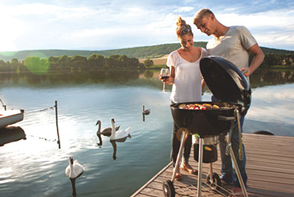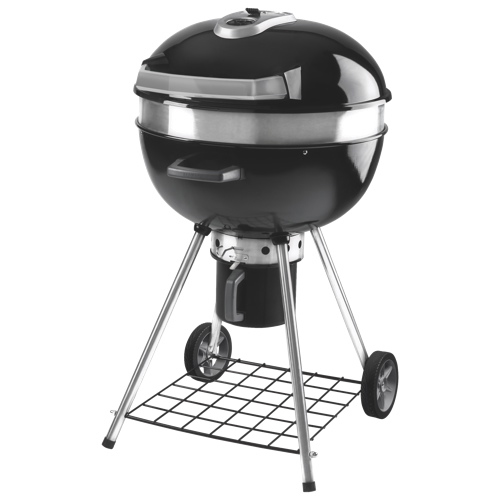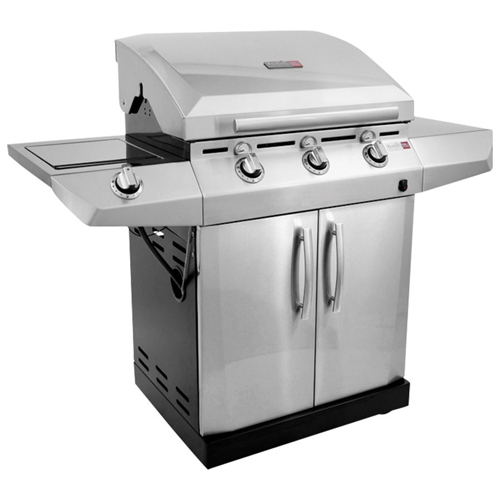 Much like the ongoing debate between devout PC users and Mac users, that between charcoal purists and gas aficionados seems as though it is here to stay. The former group believes that grilling over charcoal is the only way to get an authentic BBQ flavour, while the latter believes that gas is a much more convenience and flexible way to grill. Which group is right? They both are; but there are definitely some pros and cons to each method, which I’ve broken down for you here.
Much like the ongoing debate between devout PC users and Mac users, that between charcoal purists and gas aficionados seems as though it is here to stay. The former group believes that grilling over charcoal is the only way to get an authentic BBQ flavour, while the latter believes that gas is a much more convenience and flexible way to grill. Which group is right? They both are; but there are definitely some pros and cons to each method, which I’ve broken down for you here.
CHARCOAL BBQS 
PROS:
- Portability: Charcoal barbeques are typically smaller, lighter and therefore much more portable than gas barbeques, making them easy to transport to different areas of your backyard, patio, or even to a park or campsite. Their size also makes them easier to store in sheds, garages, or even apartment storage units.
- Flavour: Charcoal enthusiasts will tell you that the “smoky” flavour you get by grilling on a charcoal barbeque creates an authentic taste that can’t be replicated with gas.
CONS:
- Long Time to Heat Up: Once you’ve successfully lit your coals, you’ll need to wait about 40 minutes until you see the whitened cinders telling you that you’re ready to grill, so patience is required when cooking with a charcoal barbeque.
- Dirty & Take Time to Burn Out: Charcoal briquettes can be quite dirty to handle, and once burning, they are difficult to put out. In fact, it can take up to 48 hours for the ashes to cool, so can be a safety hazard if you don’t have somewhere safe to store it once finished cooking.
GAS BBQS  PROS:
PROS:
- Easy to Light: With a gas barbeque, all you need is a match and you’re set; the gas does all the work. You don’t need to worry about the wind or any other inclement weather impeding your ability to get your coals to glow.
- Heat Up Quickly: Depending on the model, gas barbeques only take 5 to 10 minutes to pre-heat before you can start to cook, making them ideal for weekday dinners when time is at a premium.
- Adjustable Temperature: Similar to cooking on a gas stove (which is one reason charcoal purists are anti-gas), you can adjust the temperature of the by turning a knob. This makes them more conducive to grilling fragile foods, like fish and vegetables, and reduces your chances of overcooking.
CONS:
- Price Point: Gas grills are generally more expensive than charcoal grills, so if cost is a factor, charcoal might be the way to go. However, keep in mind the cost of charcoal briquettes, as one bag of them won’t last as long as one take of propane.
- Size: Gas barbeques tend to be bulkier, heavier to move, and much larger than charcoal barbeques, so typically need to find a permanent home in your backyard or patio, which can take up a lot of premium outdoor space.
As you can see, it really comes down to personal preference. If you like the idea of cooking quickly and consistently, then gas is for you. However, if you like the time and process involved with a more “authentic” barbeque experience, then charcoal is your friend. Happy grilling!
If you’re looking for a new barbeque for this grilling season, shop the full selection at Best Buy.



